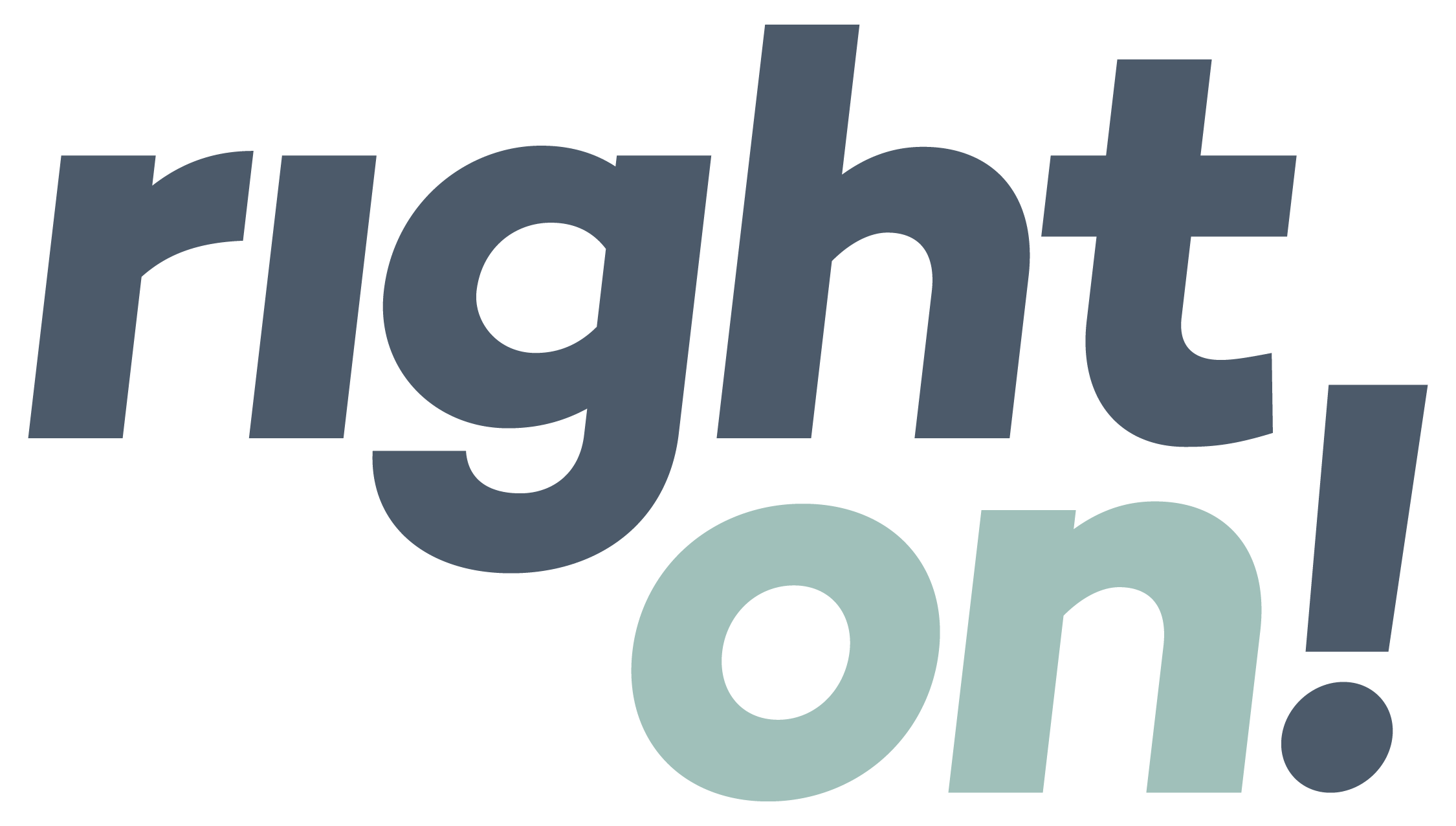
Step away from the buzzwords.
One of my favorite podcasts is Adam Grant’s Re:Thinking. So when I saw this recent title, Decoding Gen-Z slang and grammar pet peeves with linguist Anne Curzan, I was all in. They talked about the push and pull between “grammandos” (enforcers of hard and fast grammar rules) and “wordies” (lovers of words willing to push boundaries) and where to find a happy middle ground. Ann related this to the language today’s kids are using (but told the story using a birder analogy to connect with her Gen-X audience 😉): when we hear or see something new, rather than bristling and shutting it down, we should be curious about it.
As team full of wordies, it’s our job to stay curious. And while there’s some sort of endorphin hit that comes from our lively discussions about misuse, overuse, and just flat-out bad use of certain words, we’re mostly seeking to strike a balance between novel, compelling ways of saying something and clear, accurate communications. That said, uncovering cliches and spotting buzzwords is something we just can’t unsee—an equally burdensome and beneficial part of the job. Because sometimes we too use the words on our own jargon naughty list only to spend an untold amount of time spinning up alternatives.
Why does it matter if a little fluff word gets added in or we revert to a phrase that everyone’s using (“save the world” anyone)?
Well, we’ve learned that in sustainability communications lazy language choices not only limit our ability to connect with audiences, but also obscure the facts or misrepresent the figures. That’s why we spend a fair amount of time researching and understanding the best words for the job. Fortunately, many smart, passionate professionals have joined us in this pursuit.
Say this, not that.
Making a compelling case for clearer language in sustainability is a report that’s been out for a few years but still holds up: Words that Work from the creative consultancy RY. The researchers effectively argue that when language is overused, it becomes meaningless to readers. And it offers 10 Principles for better sustainability communication so you can break free from the cliches that result in a “buzzword salad.”
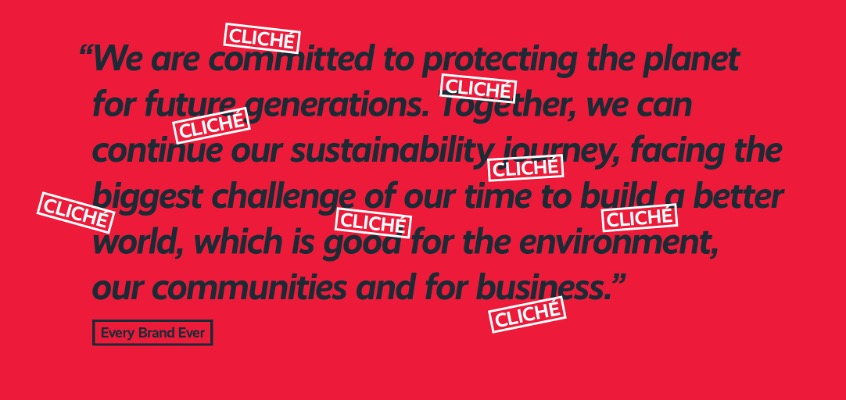
The Right On team recently had some fun coming up with our own list of overused, confusing, and meaningless words and phrases along with some alternatives.
| Buzzy | > | Better |
| Net zero | > | Reduce pollution |
| Green | > | Clean |
| Fight climate change | > | Stand up to polluters |
| Sacrifice | > | Conservation and preservation |
| Decarbonization | > | Cutting pollution |
| Circular economy | > | Continuous use |
| Save the planet | > | Caring for our community |
| Impact | > | (replace with actual result) |
Some simple strategies for avoiding buzzwords, platitudes, and cliches, which we teach in our Writing Workshops, include:
- Talk like a human with specific, clear language.
- Move away from lofty macro statements and lean into vivid language.
- Avoid abstract concepts by connecting your storytelling to people.
- Stay away from corporate speak—speak in the voice of your brand.
- Emphasize local impacts over global consequences.
Rallying our words around a big narrative.
At our June Sustainability Salon, where our team digs deep into topics related to sustainability communications, we focused on results and insights from the global messaging study, Later is Too Late, conducted by the brilliant marketers at Potential Energy Coalition.
The deeply researched study looks at messaging related to climate. One of their key discoveries was to center messaging around a big narrative that connects audiences to shared motivations. In their testing of a range of climate messages like “green jobs,” “economic prosperity,” “ending injustice,” and “fighting the costs of extreme weather,” the one that performed best—protecting our planet for future generations—centered around the big narrative of protecting what we love.
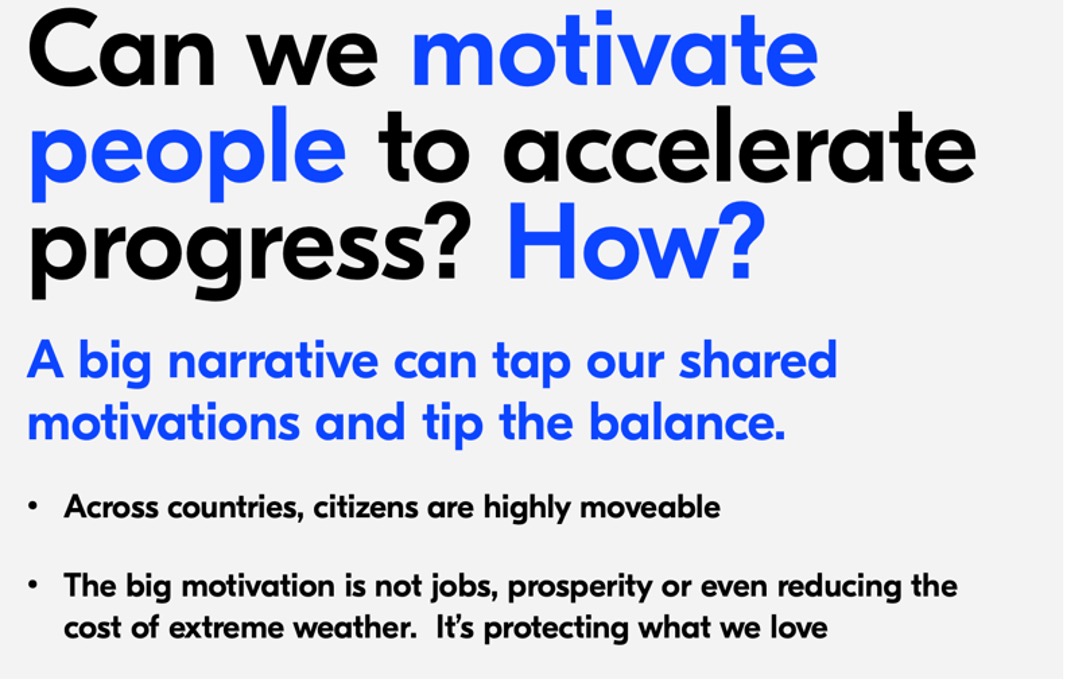
While protecting our planet for future generations was the clear winner, it’s also a phrase we hear repeatedly in sustainability communications. So our job as communicators is to take the essence of this message and recommunicate it in a more compelling way. Nobody does it quite like Patagonia in their commitment statement:
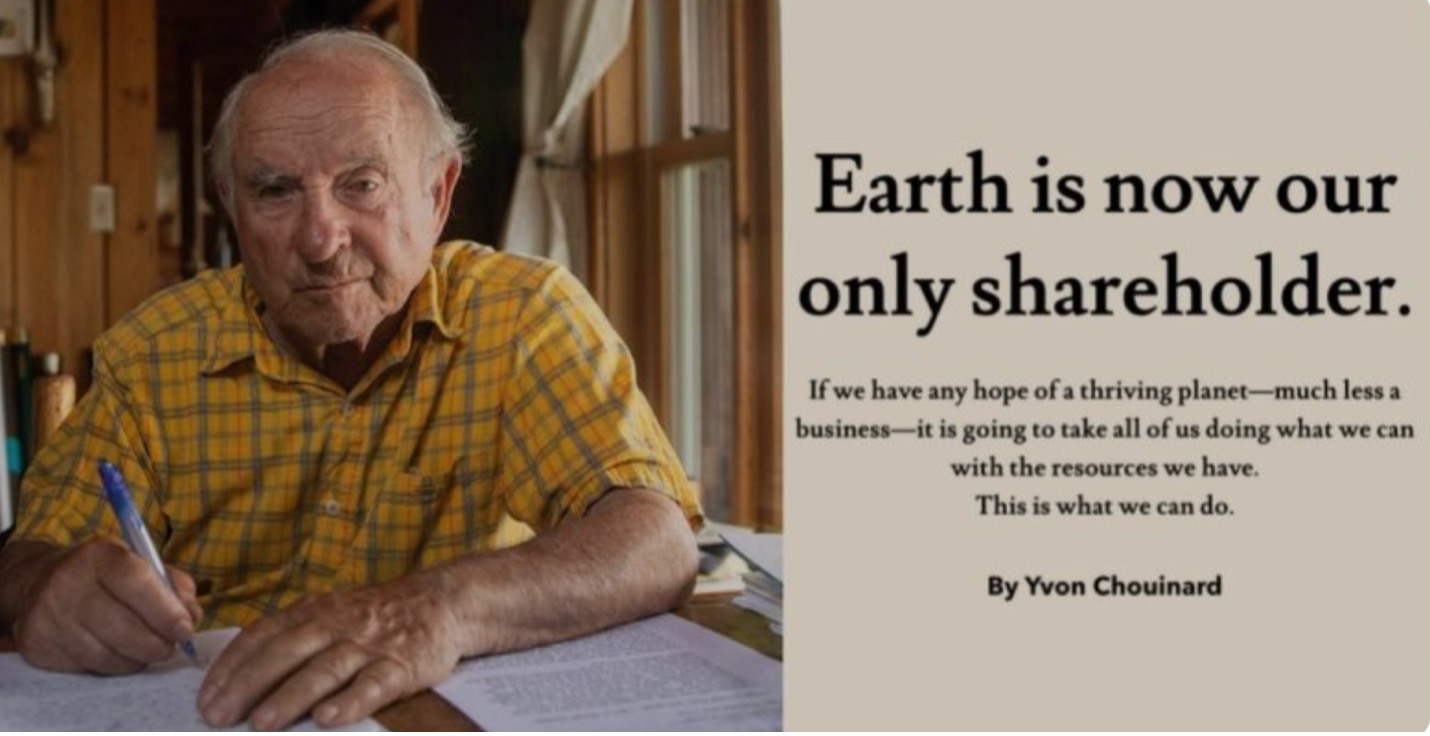
Following their own research, the study name, Later is too Late, is another example of distilling the big narrative down to a relatable, emotional phase. I picked out a few more key strategies from the study for effective climate communication:
- Don’t talk about limitations and mandates, instead talk about positive solutions. Avoid words like regulate, ban, restrict, control and replace them with innovation, clean energy, upgrade.
- Avoid politically polarizing messages.
- Focus on incremental change instead of big, disruption action.
- Emphasize optimistic realities instead of catastrophe messaging like “climate emergency.” These two examples, from Words that Work, show the stark difference between bleak doomerism and optimistic realism.
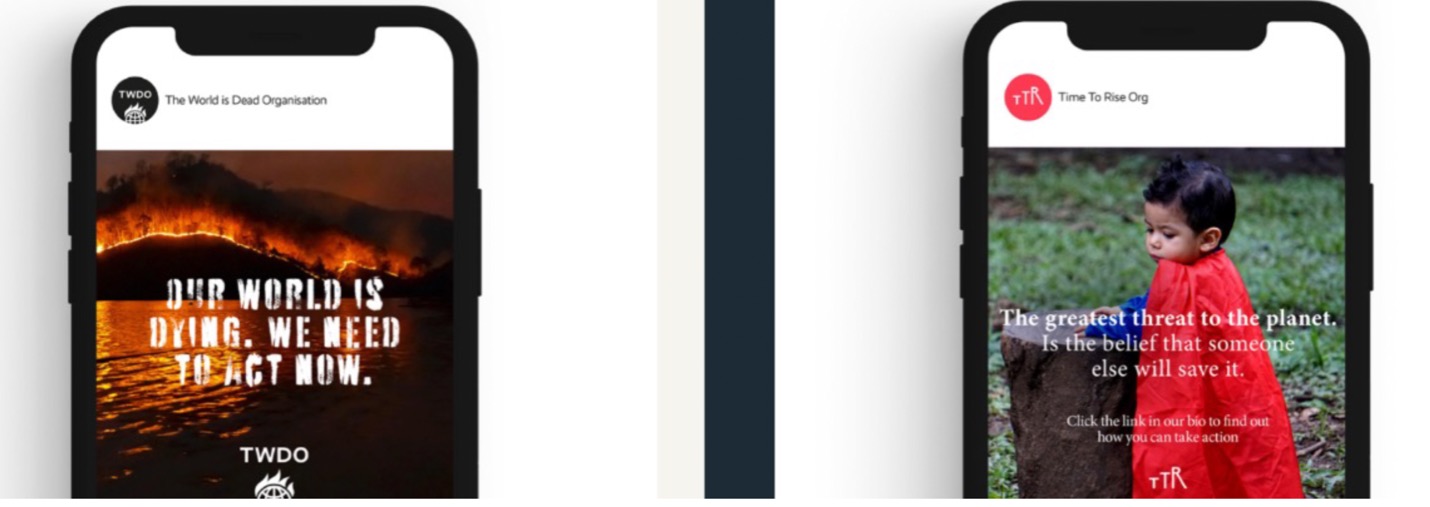
Let’s face it, sustainability terminology and buzzwords may seem like the way to connect with your audience, but they actually make the writing opaque, tired, and totally skippable—landing you in the general and ambiguous messaging category. Being creative and curious means going deeper to ask yourself, what am I really trying to say here? Because in sustainability we need words that are more, well, sustainable.
Our Most Recent Insights.
SEE ALL INSIGHTS →
Strategy
How to talk climate with conservatives.
Many conservatives care deeply about the environment. They just talk about it differently.

Storytelling
Stories of hope from Climate Week.
At Climate Week NYC, people showed up to with creative, courageous climate solutions.

Strategy
Get your sustainability initiatives funded.
How healthcare leaders win support for sustainability — and how you can, too.
